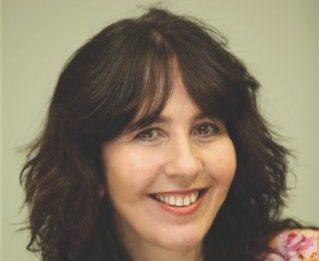click to dowload our latest edition
CLICK HERE TO SUBSCRIBE TO OUR NEWSLETTER


Published
4 years agoon
By
adminPETA KROST MAUNDER
And while we all hear talk of a looming water crisis, for the most part we don’t want to believe it’s possible. I mean, how can we possibly deal with crises in electricity and water?
For one thing, there already is a water crisis in many rural parts of the country, where people have a dearth of water and proper sanitation, but this hasn’t really had an impact on us in the cities.
Two years ago, Cape Town almost ran out of water but at the last minute, the crisis was averted. Has it learnt its lesson? According to ex-pat Dr Clive Lipchin, the director of the Israel Center for Transboundary Water Management and faculty member of the Arava Institute for Environmental Studies, it hasn’t made plans to avert another crisis. Having done a study on water management in South Africa, Lipchin says the next drought is coming, and Cape Town will be in a far worse situation. (See page 3.)
He also maintains that one cannot just look at electricity alone – electricity and water go hand-in-hand – and every time there is loadshedding, it weakens the water infrastructure. The water infrastructure in South Africa is “ageing”, and we already have serious problems with leakage and water wastage.
Lipchin brings his knowledge and expertise from Israel, a country that was a desert but now has a sustainable water infrastructure. He has lots to teach us, as do his many colleagues. The problem is that South Africa isn’t listening, and if it is, it’s digging in its heels to avoid taking advice and help from Israel for all the wrong reasons.
Lipchin maintains that Israel and South Africa have similar challenges, but Israel has, to a large degree, risen above them. Israel could really help South Africa, and give our experts greater expertise.
Lipchin is in South Africa meeting various role players, and the Israeli ambassador recently met Western Cape Agriculture Minister Ivan Meyer, so perhaps there might be something positive in the pipeline. It’s early days, I guess. So, why am I so cynical and disbelieving?
Just last week, I heard that Lindiwe Sisulu, the former minister of international affairs and cooperation, now minister of human settlements, water, and sanitation, was officiating a signing ceremony of the RSA-Cuba Water Resource Management Agreement. The agreement is for the deployment of 26 Cuban engineers who will provide support on infrastructure maintenance and operational skills through the water value chain.
I didn’t know that Cuba was an expert in water management. Not being an expert in this field, I did a little online research to find that most people don’t advise drinking water from the taps in Cuba. Also, the country had a serious drought which caused mayhem back in 2017. I’m not sure that this means that it’s on top of keeping its water potable, but I could be wrong.
Now, I wouldn’t dare suggest that we might look to Israel for such an agreement – considering its expertise – because of this particular minister’s sensitivities regarding the Jewish state. However, she could do a whole lot worse…
Going back to Lipchin, he called on civil society to get involved and hold government to account because there are solutions, they just need to be sought and utilised.
From Cuba to the African Union this week, where President Cyril Ramaphosa said United States President Donald Trump’s peace plan reminded him of the creation of “Bantustans” without proper consultation with all the people concerned. (See page 1.)
I totally understand that there are many in our community who are up in arms about what he said because of the evocative language and comparison between apartheid South African and Israel. It wasn’t necessary, and was quite ugly. However, in this instance, he is criticising Trump and his proposed peace plan, not Israel. He doesn’t even mention Israel and what it plans. He was opposing the fact that the Palestinians weren’t involved in the creation or launch of the plan, and saying that he didn’t like its content.
As it happens, he isn’t alone. Benjy Pogrund, our esteemed veteran journalist and activist who now lives in Israel, agrees with him. Can I say that debate about a peace plan is fair enough? It should be debated. It should be thrashed about, and worked on to find the best solution. It may not be perfect and may not be right. The point is, it’s a start, and hopefully a move towards finding a solution.
Tempers need to be tamed, and people need to sit down around a table and discuss what works, what doesn’t, and what might be better.
Can you imagine if this was the next step? The truth is that our president – who probably has his hands full right now on the home front (or at least that’s where he should be focusing) – could really push things in that direction. He would have to stop the South African government from taking sides and look towards peace rather than political one-upmanship.
If he doesn’t, I sure do hope someone sees the reasoning in this, takes up the torch, and gathers Middle East leaders, Palestinians too, and heads towards that round table. Would that this was the next step!
For all that some of us may despise Trump, this is undoubtedly a move in the right direction, no matter whether the plan is ridiculous or brilliant. It’s a template to work from.
Once again, it takes civil society and true leadership to take up the cudgels of this process and run with it. Make it happen! Here’s to peace in the Middle East in our lifetime.
Shabbat Shalom!
